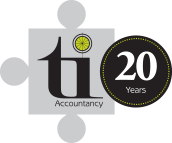
What is Making Tax Digital?
In 2015 the government set out a vision to transform the tax system to a more modern one where everyone records and submits tax details electronically.
Personally, I think this stems from the success they had with RTI. Before 2005 payroll details were only submitted once a year, but with the aid of digital technology it is now submitted every payrun.
Making Tax Digital means that eventually all submissions to HMRC whether it be VAT, Income tax or Corporation tax will be, like the PAYE is now, via compatible digital software.
Who is currently affected?
From April 2022 any UK businesses that are VAT Registered. They are requested to maintain digital records and submit their VAT returns to HMRC using compatible software.
Calculations for things such as partial exemption adjustments and fuel scale charges will not be captured digitally and will be added manually to the digital records.
What does “maintain digital records” actually mean?
It doesn’t mean that businesses need to store invoices digitally (although some of the compatible software does).
It means that there is a specific list of information, that will be sent as a report, to HMRC. This will include a list of each sale and purchase the business makes showing the net amount and the VAT rate and amount.
Has it not been delayed?
The submission of Income Tax and Corporation Tax have been delayed. MTD for income tax will become mandatory if you are self-employed or a landlord with taxable turnover above £50,000 for your first accounting period starting on or after 6 April 2026 followed by those with taxable turnover of £30,000 and above in April 2027. MTD for income tax for partnerships with individual partners will be introduced at a later date yet to be announced. MTD for corporation tax is not expected to be introduced until 2026 at the earliest.
What does this mean for businesses?
The government believe this is a way of lessening the £9 billion tax they estimate they lose annually in errors made on tax submissions.
They believe using a digital system will ensure they get their tax right the first time and also believe it will not only reduce the tax gap but it will reduce costs, uncertainty, worry and time for HMRC to intervene to put things right.
If I’m affected, how do I prepare?
If your accountant does your VAT return you will need to ask if the bookkeeping is done on MTD compatible software, they should already be sending you blogs/letters etc keeping you up to date on this subject, we have a few in our backlog of blogs on TI Accountancy’s website if you want any more information.
If you do your own VAT return, then you need to research whether the software you do your own bookkeeping on is MTD compatible. There is a list of software providers on HMRCs website
If you are still doing your bookkeeping on spreadsheets/manually then you need to invest in a compatible digital software.
Do spreadsheets count as Compatible Software?
By themselves no. There are some bridging software’s available that link to the HMRC’s API to comply with MTD. If a business is using this method now it may be something to look at, however I wouldn’t recommend someone moving to this method as there is a much greater benefit to moving to digital bookkeeping software.
Are there any benefits to my business?
As a bookkeeping company we push to get all business up to date on a monthly basis with their business numbers and MTD will help business to keep on top of their bookkeeping.
Having it on a digital software
- Lessens mistakes
- Helps with understanding your financial position
- Being able to plan more efficiently
- Lessens accountancy fees.
Will people who have monthly or annual VAT returns now have to submit quarterly?
No, businesses with these schemes will be able to continue to submit the non-standard returns, but they will have to keep their records on a compatible software.
What if a business is exempt from online VAT returns, will they have to start submitting online?
No, there are several exemptions from being compliant, these include:
- Not being able to use a digital system due to age or disability
- Having no internet where you live
- Objection to using computers on religious grounds
All these people will have to apply for an exemption on the HMRC’s VAT Helpline.
When MTD for Income Tax and Corporation Tax are introduced, if businesses are submitting their accounts once a quarter does that mean they don’t need to submit year end accounts?
They will still need to submit year end accounts in the same way they do now in the same time scale (So limited companies 9 months and self-assessments by 31st January).
It just means that HMRC will already hold most of this information before you submit it, in the same way the payroll system is set up now.
What happens if a business doesn’t comply?
Penalties will apply:
- A default is recorded for failure to observe the MTD rules or missing a filing.
- Taxpayers then enter a surcharge period, lasting 12 months, if you fault again. Surcharges are % penalties of the VAT due on the latest return.
- An accumulated points system then applies for further faults if they happen within twelve months. (The twelve-month surcharge period is reset each time there is a new fault.)
- The points translate into increases % surcharges for each accumulated default. They start at 2%, and scale up to 15%.





